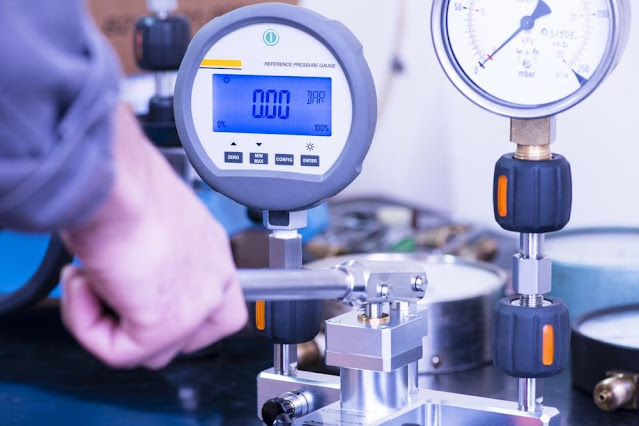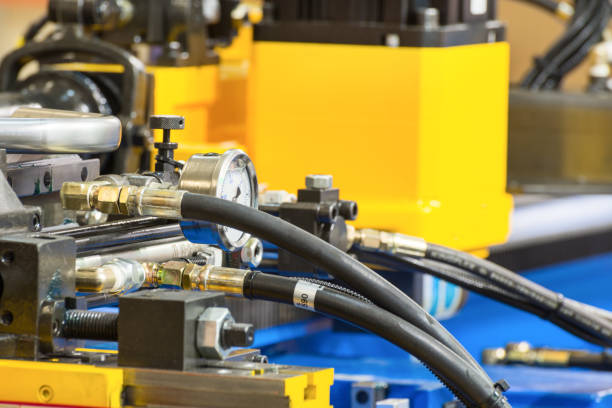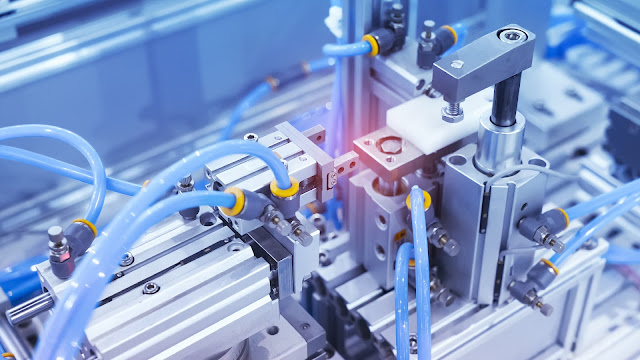Hydraulic Motors may produce either rotary or reciprocating motion in the load In the operation and control of machine tools, farm machinery, construction machinery, and mining machinery, fluid power can compete successfully with mechanical and electrical systems (see fluidics). Hydraulics deals with such matters as the flow of liquids in pipes, rivers, and channels and their confinement by dams and tanks. The motor may be a counterpart of the pump, transforming hydraulic input into mechanical output. This continuous and irrecoverable change of position of one part of the material relative to another part when under shear stress constitutes flow, a characteristic property of fluids. Thus, kinetic energy, deriving from motion, can be partly converted to pressure energy by enlarging the cross section of a pipe, which slows down the flow but increases the area against which the fluid is pressing Until the 19th century it was not possible to develop velocities and pressures mu...




